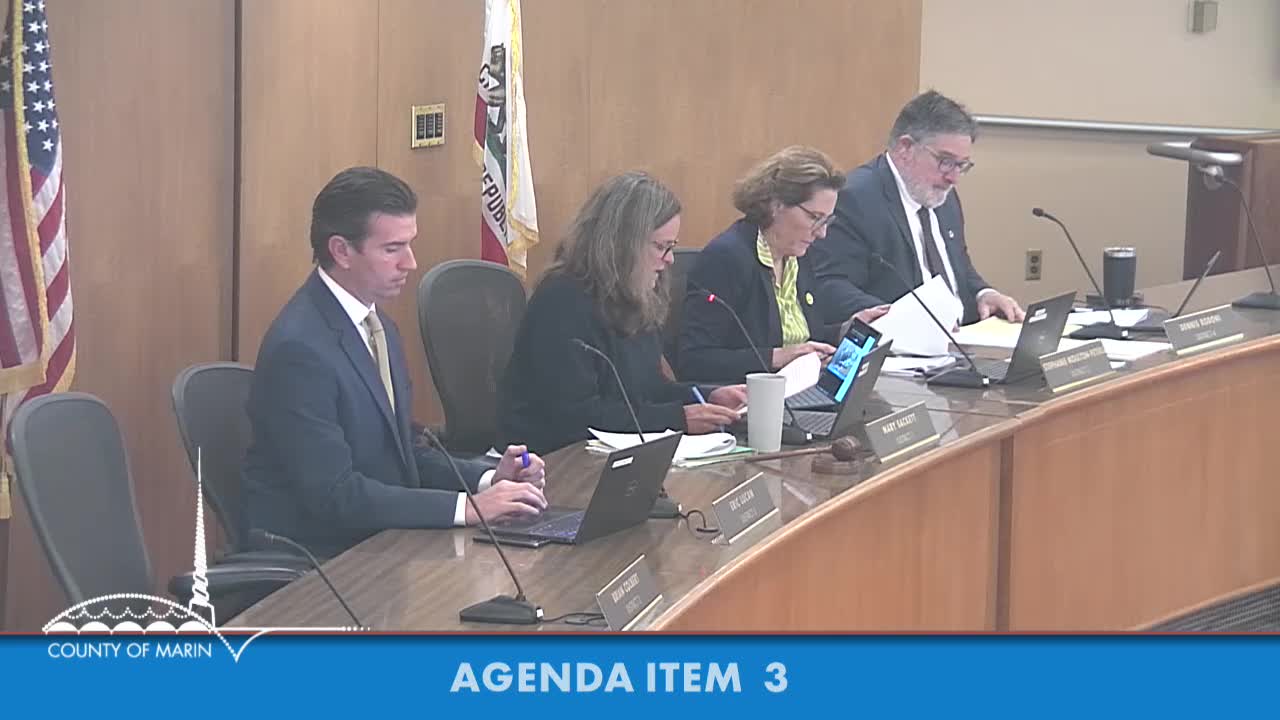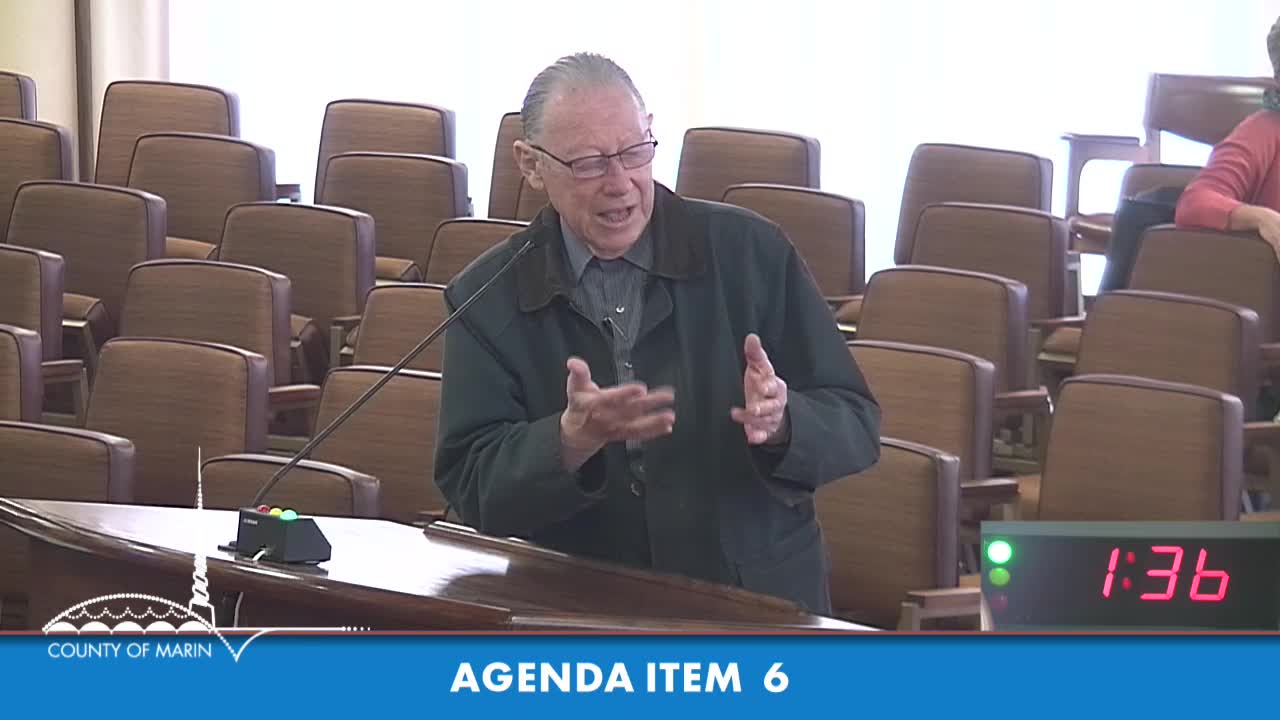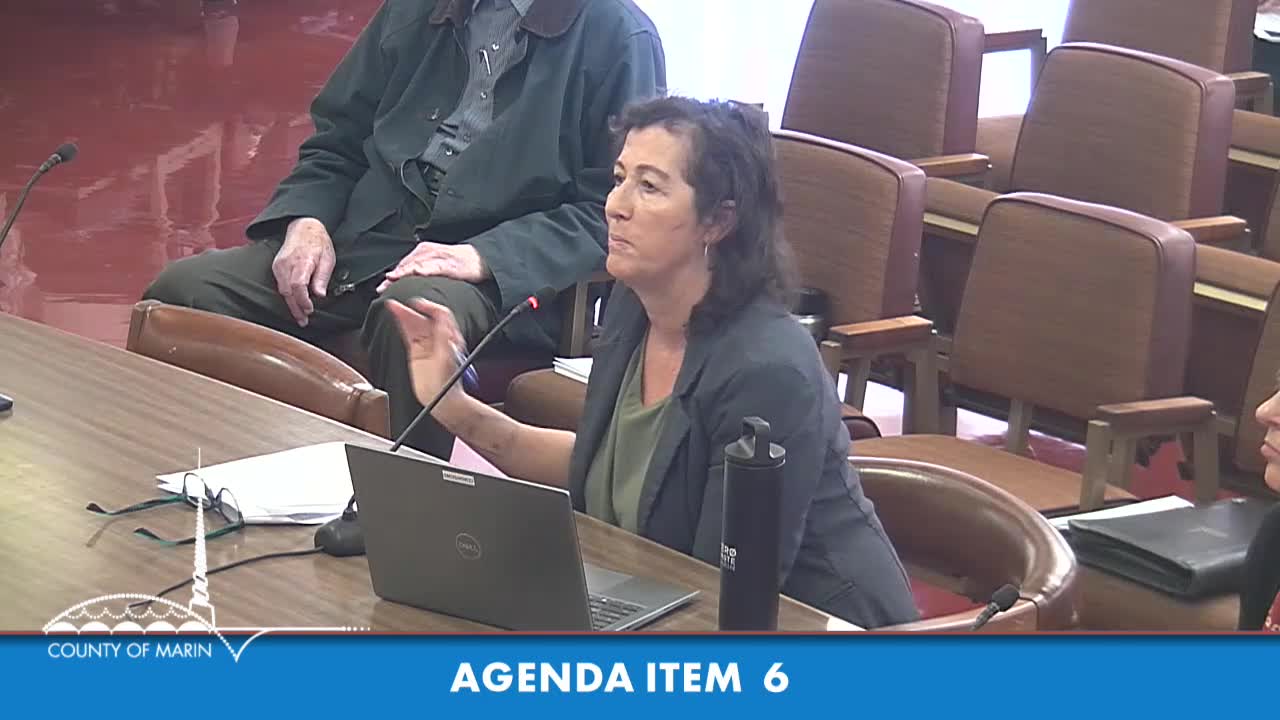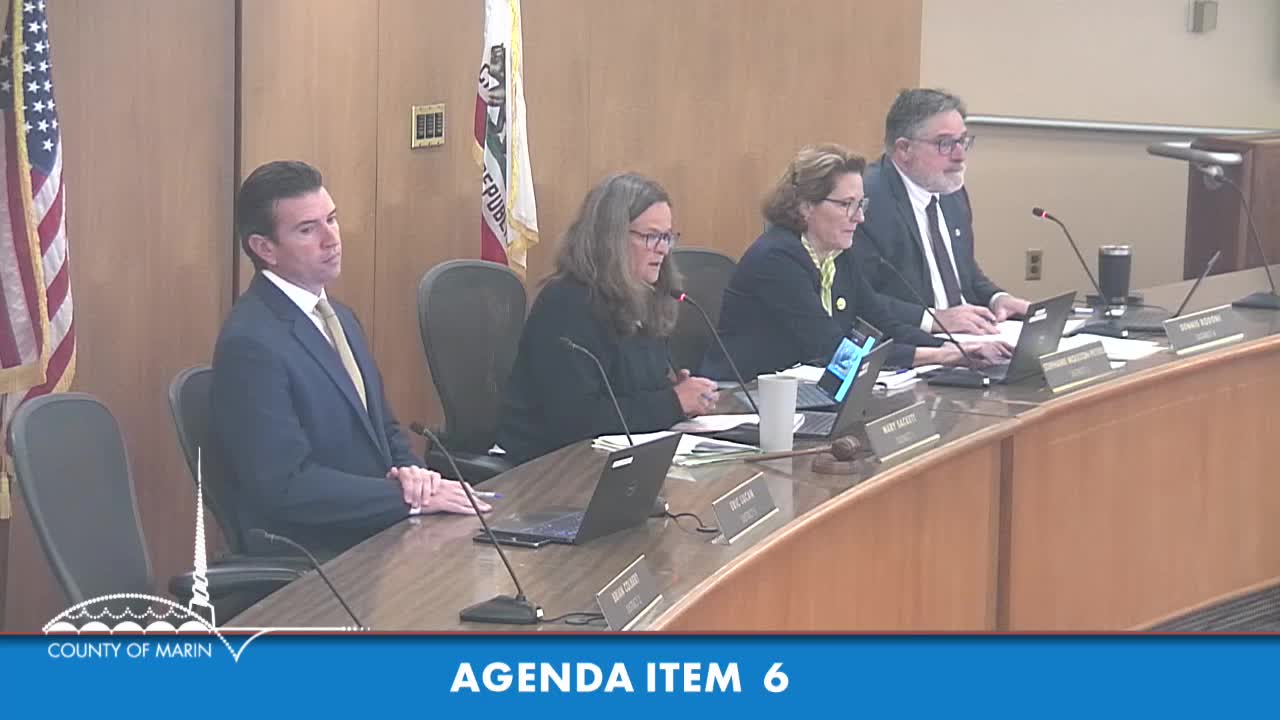Article not found
This article is no longer available. But don't worry—we've gathered other articles that discuss the same topic.

At a glance: board votes and appointments from the April 15 Marin County supervisors meeting

Supervisors approve $100,000‑per‑unit housing trust loan for Habitat’s Redwood Boulevard homeownership project

Board adopts updated local hazard mitigation plan into county safety element

